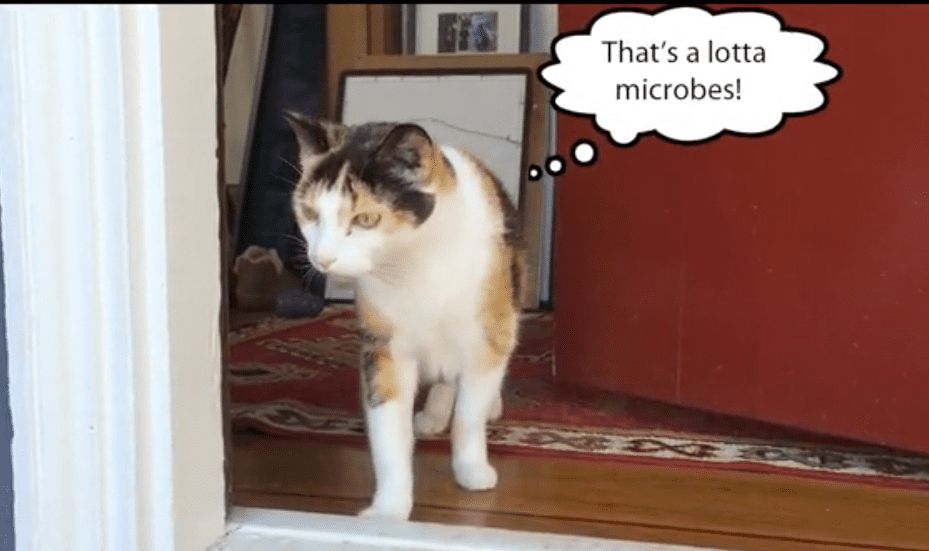Over the past few years, researchers have gotten a much better idea of the importance of the human microbiome–the trillions of bacteria living in and around our bodies. Now we know that these bacteria can make us more obese, change how our brains work, and are unique to individuals. Although a number of questions remain about our microbiomes, one group of researchers hopes you can help with an urgent query: How are bacteria affecting our cats?
Four California-based biologists recently launched the kittybiome, a citizen science project that could help them better understand the bacteria living in and around our feline friends. According to the project’s Kickstarter page, the researchers hope to use the microbiome data to find out:
- How do grumpy cats compare to happy cats?
- How do athletic cats compare to couch potato cats?
- Does it matter if you feed your cat a paleo-mouse diet?
- How do indoor and outdoor cats compare?
- What happens when your cat goes on antibiotics?
- How does the microbiome change during your cat’s nine lives?*
With a $99 donation, any cat owner can send in a fecal sample fresh from the litter box and answer a few questions about his or her cat’s health and diet. The researchers then sequence the DNA of the bacteria in the sample and, after a few weeks, share the type and concentration of the bacteria online. Participants (or their owners) can even compare their microbiomes to those of other cats, including a few “celebrity kitties.”
One interesting feature is that the researchers are interested in the microbiomes of more than just house cats; a pledge of $149 or more allows donors to see the microbiome profile of a wild cheetah, leopard, puma, or lion–though the project founders don’t specify how they will collect those samples.
Since this is the first project to look into the feline microbiome in such detail, the researchers note that it’ll take time to associate specific bacterial cultures with the cats’ health or personalities (this has not yet been done for humans, either). But cat owners may also learn about themselves; another study, conducted in dogs, found that humans and their canine companions shared a lot of the same microbes.
Since the Kickstarter launched three days ago, kittybiome has already surpassed its goal, so it’s definitely happening. But there is still time to buy your own kittybiome sampling kit and participate in some citizen science.
- note that cats do not actually have nine lives. It’s science.









